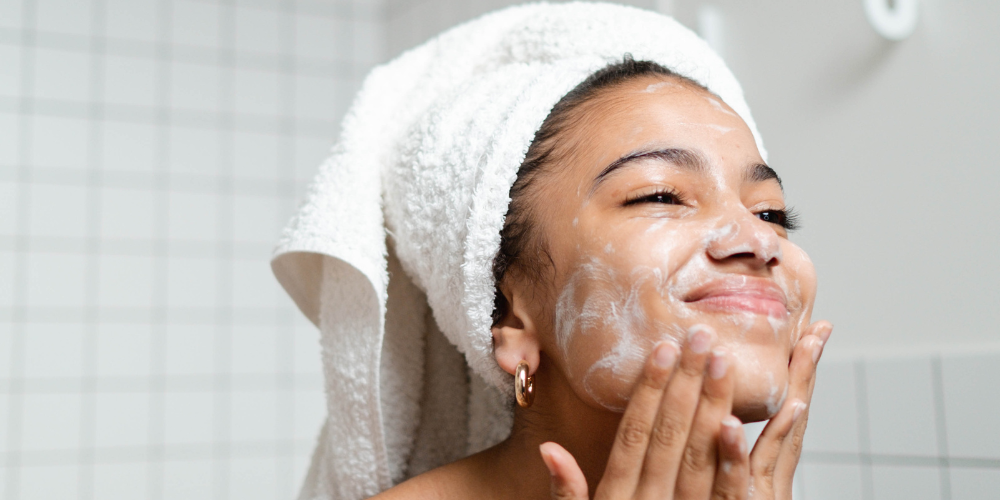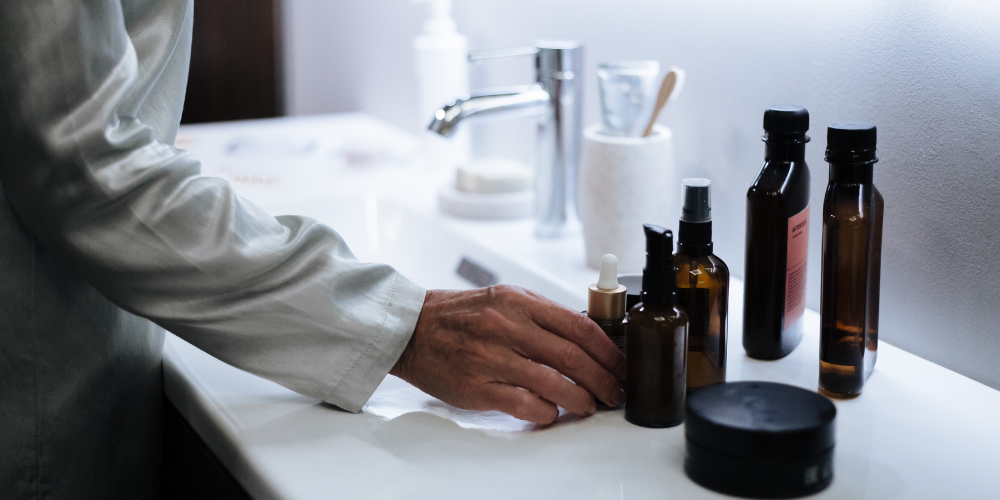
It’s a debate as old as time — does washing your face in the morning positively or negatively impact your skin? If one thing is certain, it’s that the skin on your face is incredibly sensitive and has a delicate skin barrier that needs to be protected at all costs. Without keeping your skin’s barrier in mind, you could notice rosacea, eczema, or chronically itchy and irritated skin. Covering these symptoms with makeup and properly treating these conditions can be a huge challenge, which is why extra attention is needed when it comes to caring for your skin.
Skipping your morning face wash is incredibly practical, as it completely removes a step from your routine. But if it’s right for you, really depends on your skin type and comfort level. It’s perfectly normal to feel weird about making a big change in your skincare and beauty routine.
The benefits of skipping the morning face wash
Washing your face at night is absolutely critical as you’re clearing your pores of any makeup residue and dirt that came in contact with your skin during the day. But on the other hand, not washing your face in the morning can lead to some awesome benefits.
● It gives your skin the time to breathe, repair, and regenerate
● It supports your skin’s natural barrier, which is very sensitive
● It will save you some time, especially if you’re always running late for school or work
● It can help hydrate your skin and give it a natural moisture boost
● Not washing your face in the morning can help your nighttime products work even better
● It can help clear acne as over-washing and over-scrubbing your face can exacerbate acne

Who should consider skipping an A.M. wash?
If skipping the morning wash entirely freaks you out, start with rinsing your face without a cleanser. Then once you get comfortable with this, try skipping any rinsing or washing, and see how your skin looks and feels by the end of the day.
Many people are great candidates for skipping their morning wash, especially if they have: dry or sensitive skin, oily or acne-prone skin, or skin that can become easily irritated with too much product. We’ve all over-washed our faces a time or two, resulting in redness and irritation that’s near impossible to cover with foundation and concealer.
It’s also a superb option for ladies and gentlemen who like rich, heavier nighttime creams as it can extend their effects if left on throughout the day. Washing off your nighttime products isn’t necessary.
How does this impact your nighttime skincare routine?
Simply put, not washing your face in the morning shouldn’t impact your nighttime routine too much. However, it is extra important to thoroughly cleanse your face at night, ridding it of any dirt and makeup, before going to sleep. This means double cleansing with a gentle, natural cleanser that is free of chemicals and fragrances.
To take your nighttime skincare routine a step further, after cleansing, apply a nutrient-rich serum and a hydrating moisturizer. These can safely be left on for the following day.
If you use products that contain retinol or vitamin A, these should not be left on your face all day and should be washed off in the morning. Otherwise this could cause irritation and photosensitivity.
Overall, skipping the morning face wash can be beneficial if you have oily, acne-prone, or dry skin. But like with any new product or skincare routine, it’s important to test it out before diving in head-first. Try it out for a few days and if it doesn’t seem to work for you, don’t feel bad about switching back to washing your face in the morning!
Disclosure: We are a professional review and product rating website and mobile app that receives compensation from the companies whose products we review and rate. We are independently owned and the opinions expressed here are our own interpretations of a trusted source.
The Great Debate: Should You Wash Your Face in the Morning? was originally published in Think Dirty on Medium, where people are continuing the conversation by highlighting and responding to this story.